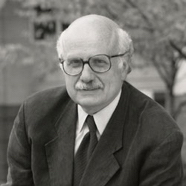The Billionaires’ And Millionaires’ Democracy
Fred Wertheimer’s Weekly Note | August 25, 2022
 Our nation’s capital today floats on an ocean of influence money provided to elect favored candidates and/or to seek results in Washington.
Our nation’s capital today floats on an ocean of influence money provided to elect favored candidates and/or to seek results in Washington.
Case in point: Peter Thiel is a multibillionaire venture capitalist who co-founded PayPal and was Facebook’s first outside investor.
Peter Thiel symbolizes today’s campaign finance system – a system dominated by billionaires, multimillionaires, and political groups with vast resources who contribute huge, unlimited sums of political money, often undisclosed.
Thiel has given $15 million to a Super PAC that is spending huge amounts to elect Republican J.D. Vance in this year’s Ohio Senate race. Vance won his primary in May and will face Democrat Rep. Tim Ryan in November.
So, if Vance wins in November, should he be called the Senator from Ohio or the Senator from Peter Thiel?
Thiel also gave $15 million to another Super PAC, known as a single-candidate Super PAC, that is spending its money only on electing Republican Blake Masters in Arizona’s Senate race. Masters won his primary earlier this month and will face incumbent Democrat Sen. Mark Kelly in November.
So, if Masters wins in November, should we call him the Senator from Arizona or the Senator from Peter Thiel?
In the late 19th century, corporate support for Members of Congress was so prevalent that some Senators who profited the most were known, for example, as the Senator from Standard Oil or the Senator from Union Pacific.
Some things haven’t changed.
Today, there are hedge fund billionaires and millionaires who benefit richly (literally and figuratively) from perhaps the worst and most indefensible loophole in our tax laws – the carried interest loophole.
Under this provision, private equity, hedge fund, and venture capital managers are allowed to pay capital gains taxes on their profit income, which is much lower than the regular tax rate. These managers are, invariably, billionaires and millionaires.
The recently passed Inflation Reduction Act originally had a provision that would have closed this tax loophole, raising an estimated $14 billion. The provision was knocked out of the bill by Senator Kyrsten Sinema (D-AZ), whose vote for the entire package was essential to achieving a 50-50 tie that could be broken by Vice President Harris.
According to Associated Press, Sinema raised some $983,000 from hedge fund and other financial managers since the summer of 2021, more than double the amount she received from the industry during her entire previous time in Congress, 2012-2021. That investment – just shy of $1 million – provided billions in benefits to the investment industry.
The Roberts Supreme Court opened the floodgates that unleashed unprecedented amounts of influence-seeking and influence-buying money in Washington.
The Court’s Citizens United decision in 2010 and the DC Court of Appeals’ SpeechNow decision, based on Citizens United, returned our country to the corrupt pre-Watergate era of unlimited and often undisclosed contributions.
The Supreme Court legalized the instruments of Super PACs and dark money nonprofits through which billions of dollars, in unlimited and undisclosed contributions, have flowed, placing our officeholders and our country in the iron grip of big money funders.
AdImpact is projecting that $9.7 billion will be spent on political advertising alone in the 2022 election and that through July, campaign ad spending in this non-presidential election cycle is running $700 million ahead of 2020, a presidential election year in which more than $1.5 billion was spent on ads by the presidential candidates alone.
The Supreme Court majority threw the American people to the billionaires, millionaires, and other big money funders without the blink of an eye.
As a result, we have a corrupt political money system in Washington that is severely undermining our democracy and that must be repaired in order to protect representative government and the interests of the American people.
________________________
Fred’s Weekly Note appears each Thursday in Wertheimer’s Political Report, a Democracy 21 newsletter. Read this week’s newsletter here. And, subscribe for free here and receive your copy each week via email.